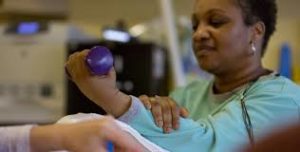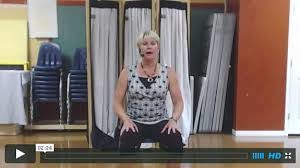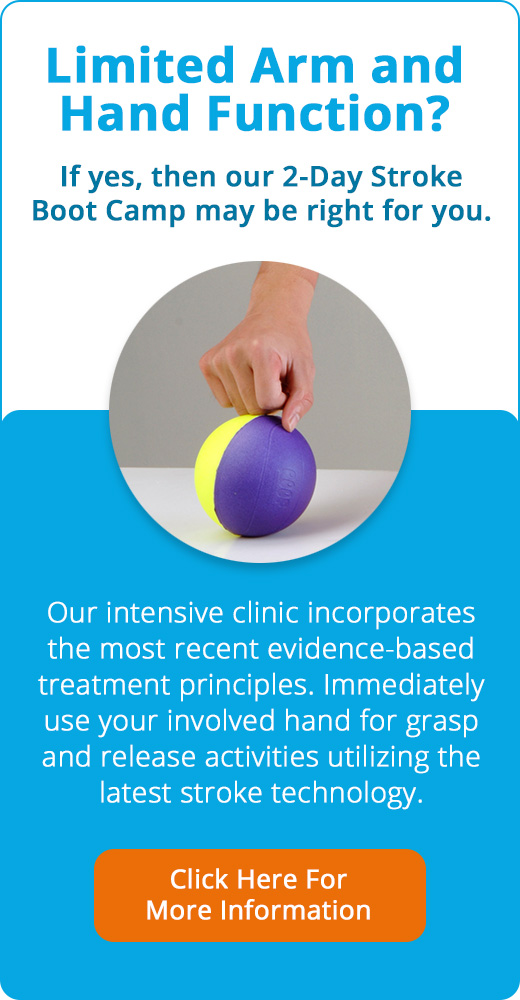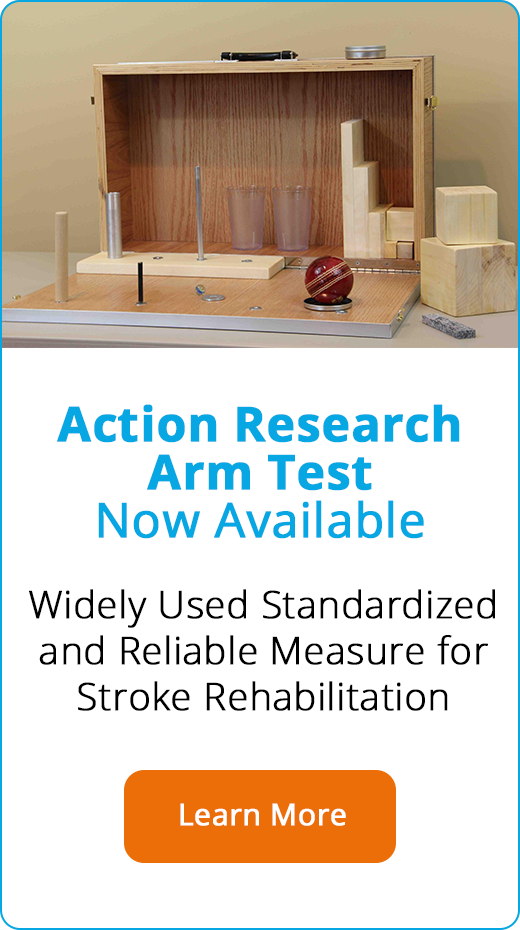Easy Hand Exercises to Boost Recovery from a Stroke
NeuroRehab Team
Tuesday, January 14th, 2020
Exercise AidsFine Motor CoordinationStrengthening

Launching a hand exercise program begins with understanding how a stroke that happens in your brain can cause problems with your hand. A stroke is basically an injury to the brain due to limited blood flow. The symptoms in the body reflect the area of injury in the brain. So a stroke survivor with hand issues, experienced an injury to the area of the brain that controls the hand.
Best Spasticity Treatment Ideas Following Stroke
Dorothee Zuleger, MOT, OTR/L, DRS
Tuesday, July 3rd, 2018

Spasticity is a condition in which a muscle or group of muscles is hyperactive and unable to turn off and relax. After an injury to the brain or nervous system signals to and from a muscle are not regulated as they should be and therefore create abnormal muscle tone. This constant state of contraction can cause, pain, stiffness and shortening of soft tissue limiting normal range of the joint. The degree of spasticity can range from mild muscle stiffness to severe, painful, and uncontrollable muscle spasms.
10 Exercise Strengthening Products for Stroke Patients. Improve Arm, Leg, Foot and Mobility.
NeuroRehab Team
Monday, November 20th, 2017
A common impairment following stroke is called hemiparesis or one-sided (“hemi”) weakness (“paresis). Hemiparesis affects about 8 out of 10 stroke survivors, causing weakness or the inability to move one side of the body. One-sided weakness can affect your arms, hands, legs and facial muscles. Individuals with hemiparesis may have trouble performing everyday activities such as eating, dressing, and using the bathroom. Rehabilitation techniques, such as strengthening exercises, can help with speeding up your recovery.
Listed below are 10 exercise products that can help improve your strength following stroke.
10 Must-Try Mirror Therapy Exercises
NeuroRehab Team
Thursday, October 5th, 2017
Electrical StimulationMirror Therapy

The principle of Mirror Therapy is the use of a mirror to create a reflective illusion of an affected limb in order to trick the brain into thinking movement has occurred. Mirror therapy allows the brain to be activated during the imitation movements and interact simultaneously with the motor neurons. For example, if you put your left hand behind a mirror and right hand in front, you can trick your brain into believing that the reflection of your right hand in the mirror is your left. You are now exercising your left hand in the brain!
Neuro Rehab Products. What’s right for me?
NeuroRehab Team
Thursday, April 27th, 2017
Arm and HandBalanceCognitionDysphagiaFoot Drop BraceLegNeuroplasticitySubluxation SlingsVision

Listed below are various clinical product categories that you may have learned while in therapy. Feel free to click on any category to see a list of products that may be appropriate for your needs.
Swallowing Exercises for Dysphagia Therapy Following Stroke
NeuroRehab Team
Tuesday, March 14th, 2017

Neurological conditions can cause trouble with swallowing as a result of damage to the brain, spinal cord and nerves. This type of swallowing problem is called dysphagia. The most common conditions associated with dysphagia include stroke, head trauma, multiple sclerosis, cerebral palsy and motor neuron disease, but any neurological disease can cause dysphagia.
Tips for Hand and Arm Exercises after a Stroke.
NeuroRehab Team
Monday, July 11th, 2016

Amit Kumar, Occupational Therapist, LS Life Skills Therapy Services Inc., Surrey, BC
Every stroke survivor’s impairment is unique. By doing regular functional activities and exercises, you can increase your quality of movement and independence in all stages following stroke. Activity may be too easy or too hard depending on the extent of impairment and function. Your occupational therapist can help you develop a daily activity and exercise program appropriate for you. Activities and exercises to improve your hand function should be simple and done at home at any time.
Hand Mobility Exercises and Stretches Following a Stroke
NeuroRehab Team
Thursday, June 16th, 2016
Arm and HandContracture SplintElectrical StimulationExercise AidsHand Function SplintsNeuroplasticity

The latest research shows that the brain is capable of reorganizing after a stroke. Therefore, arm and hand recovery is more possible than previously thought. However, in order to improve function in the upper extremity, the client must be willing to incorporate the affected side purposefully, functionally, and repeatedly.
Listed below are 2 good videos that review simple ways to stretch and exercise the affected hand and fingers.
Stroke Exercise Videos for the Arm and Leg
NeuroRehab Team
Monday, May 30th, 2016
Arm and HandBalanceExercise AidsLegNeuroplasticity

Recovering from a stroke can be quite challenging from both a psychological and physical perspective. In addition to completely experiencing a life-changing event, staying motivated with a daily intensive home exercise program can be a struggle. Once a client is discharged from the hospital, it will be important to maintain or improve their recovery by beginning an aggressive home exercise program immediately.
Arm and Hand Stroke Exercises Using Mental Practice
NeuroRehab Team
Monday, May 16th, 2016
Mental PracticeNeuroplasticity

A stroke is the rapid loss of brain function(s) due to disturbance in the blood supply to the brain. When you have an ischemic stroke, there is an interruption, or reduction, of the blood supply. Eighty percent of all strokes occur due to ischemia. With a hemorrhagic stroke, there is bleeding in the brain. After about 4 minutes without blood and oxygen, brain cells become damaged and may die. When brain cells are damaged or die, the body parts controlled by those cells cannot function. The loss of function may be mild or severe and temporary or permanent. This depends on where and how much of the brain is damaged and how fast the blood supply can be returned to the affected cells.

